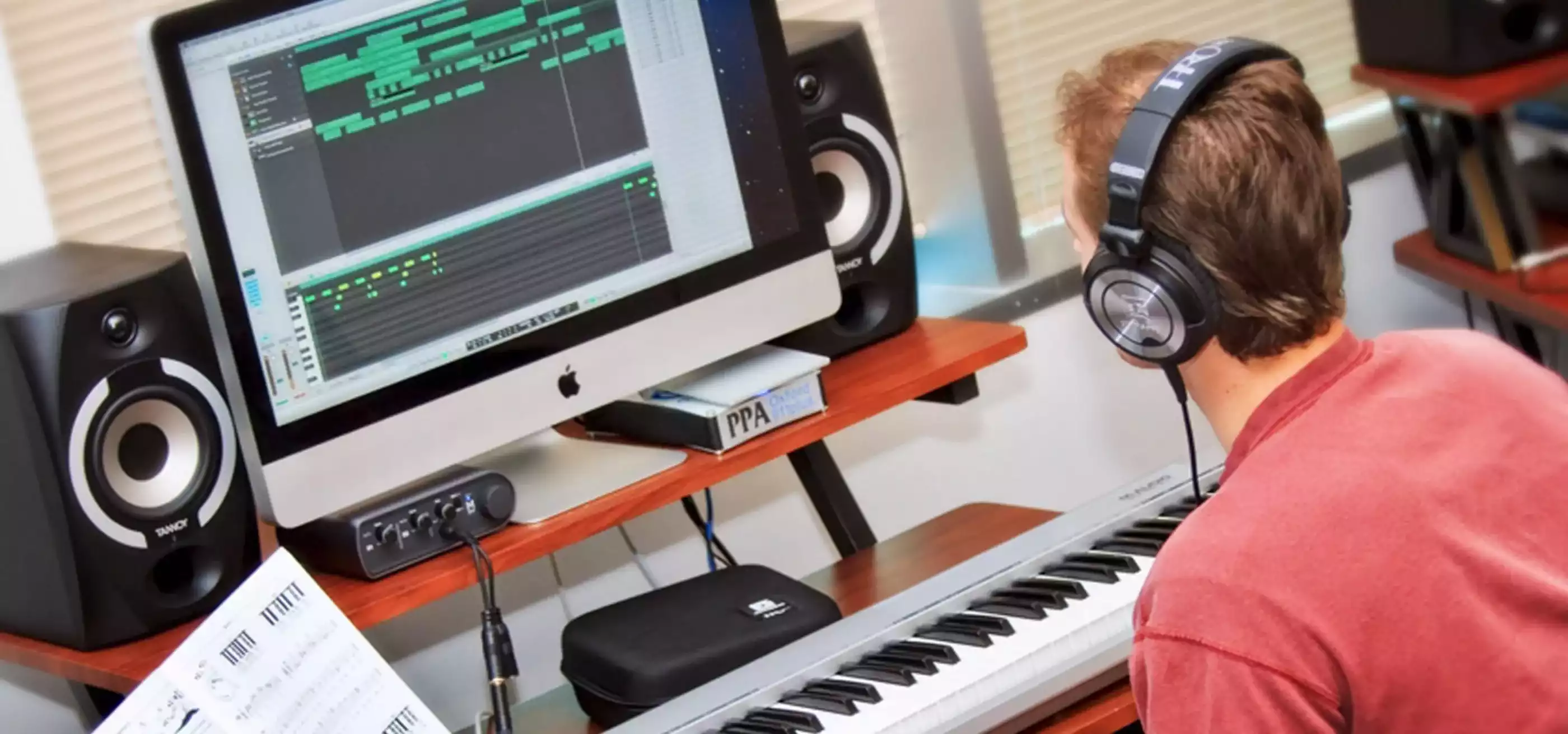Lawrence Schwedler is serious about sound.
As both an instructor and the director of DigiPen’s Bachelor of Arts in Music and Sound Design (BAMSD) and Bachelor of Science in Engineering and Sound Design (BSESD) programs, Schwedler is working to ensure that these new programs work in perfect harmony with DigiPen’s other degree offerings.
With the former program designed to focus on the artistry of music creation and the latter designed to delve deeper into the technology of sound, Schwedler says the two programs will drastically change the way student games use audio and may soon shake up the game industry at large. With time, he says, students in both programs will be able to create systems and content for what he calls “the generation of adaptive soundscapes” — interactive music and sound that can change on a dime, according to user input.
Not knowing when the event is going to occur, and yet supporting it musically — that’s really a challenge.”
For the BSESD program, Schwedler envisions a future in which certain sound effects could be modeled in real time. For example, instead of using a prerecorded, pre-rendered sound file to mimic a bullet ricocheting off a hard surface, a programmed tool would algorithmically generate that sound based on in-game environmental variables.
Similarly, he says, students in the music program will compose scores better tailored to a changing and dynamic playing experience. Compare this to movies, in which a score is composed after each visual film sequence is locked in place, or many of today’s games that use music tracks playing on a constant loop during certain levels or states of play. An adaptive score, he says, would respond almost immediately — by changing tempo, texture, or in other ways — to the player’s unpredictable behavior.
“Not knowing when the event is going to occur, and yet supporting it musically — that’s really a challenge,” Schwedler says. “How you have to think about that as a composer is a completely different animal.”
Schwedler, a veteran of the game industry, has seen firsthand how game audio has evolved over the past two decades. After completing a Master of Fine Arts degree in classical guitar performance (with a minor in electronic music) from the University of California at Los Angeles in 1993, Schwedler worked at several computer game companies before joining Redmond-based Nintendo Software Technology in 1999. As the studio’s audio director for 13 years, Schwedler composed and arranged music and sound for popular games like Wave Race: Blue Storm, Metroid Prime: Hunters, Mario vs. Donkey Kong, and many others.
“I would say that as a philosophy I’ve certainly adopted Nintendo’s outlook,” Schwedler says. “I think Nintendo has always been a pioneer in adaptive music.”
DigiPen has influenced the entire video game industry in the Northwest — really, globally.”
He points as an example to the company’s 2002 The Legend of Zelda: The Wind Waker, which implemented dynamic music during battle sequences.
“Every time Link strikes his sword there’s an orchestral hit, and it’s the rhythm of the music,” Schwedler says. “If you had a video of that you could write a musical score that did that, but they’re doing it in real time, because he’s only going to hit when you hit the button.”
Schwedler says that while music and sound in games has traditionally taken a backseat to graphics, that bias is changing, and games that take an innovative approach to audio tend to stand out. DigiPen’s sound designers, he says, will only help to speed those changes along, and perhaps leave their own impressive marks on the gaming landscape.
“DigiPen has influenced the entire video game industry in the Northwest — really, globally,” Schwedler says. “And I’d like to think that these new programs can perhaps do some of that for audio.”
